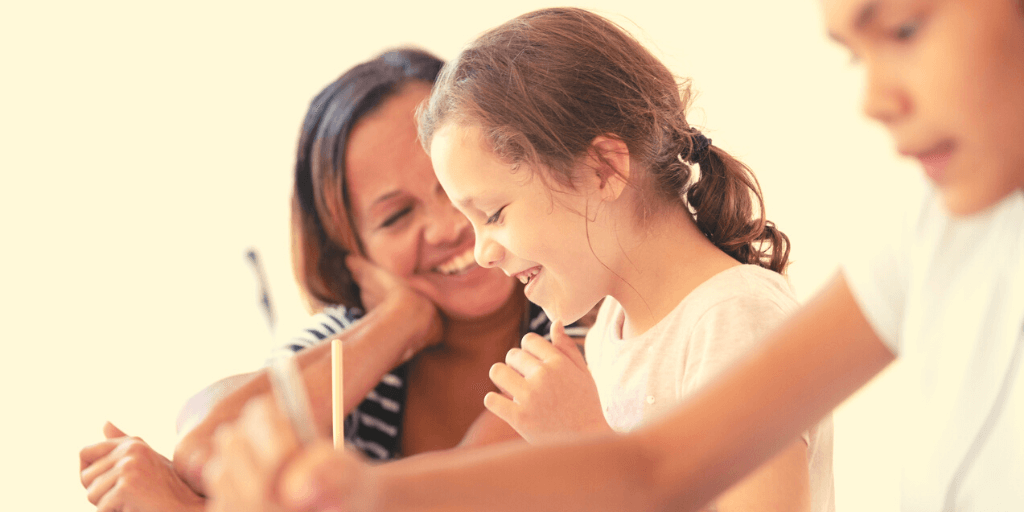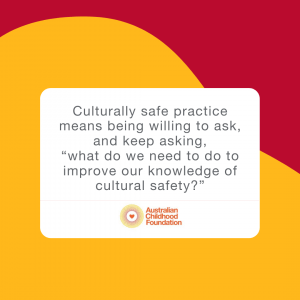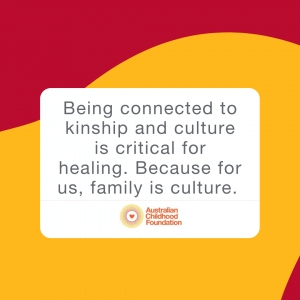
Culturally Safe Practice
Stacey Dellow, an Aboriginal woman and Team Leader in our Therapeutic Services Program, explores principles which underpin the culturally safe work practices of the OurSPACE Program in NSW, Australia.
This article was written by Stacey Dellow, Team Leader in Therapeutic Services Program at the Australian Childhood Foundation.
What is culturally safe practice? From my perspective as an Aboriginal woman, I need it to include components of the following; collaboration, authentic partnerships, prioritising relationships and having a place for critical reflection. These things give the opportunity to develop cultural courage. When these elements are present it opens a space for yarning and storytelling which is the foundation of growth and understanding in my world.
So how does this transfer to my workplace? In my work at ACF, which is a non-ACCO that supports a high percentage of Aboriginal and Torres Strait Islander communities, it brings reconciliation to the forefront of our thinking and planning. When I reflect on the work we do in the OurSPACE program, I can observe four principles which underpin our work that can support others to do the same.
A commitment to ongoing practice evolution
 Continual practice evolution ensures that our families and young people are being provided with a culturally safe service. This is evident in the consistent holding of consultation with the Aboriginal staff and a willingness to have the hard conversations which start with “what do we need to do to improve our knowledge of cultural safety?”.
Continual practice evolution ensures that our families and young people are being provided with a culturally safe service. This is evident in the consistent holding of consultation with the Aboriginal staff and a willingness to have the hard conversations which start with “what do we need to do to improve our knowledge of cultural safety?”.
A commitment to embedding culturally safe practice
The OurSPACE program is not only committed to providing Children and Young People with a culturally safe program, but they are committed to ensuring that culturally safe practice is embedded for all staff.
A commitment to the meaningful participation of children and young people
The OurSPACE program gives Aboriginal children and young people the opportunity to be in the driver’s seat of their lives. They direct how and where their journey will go, choosing their goals, whilst being supported by our therapeutic staff. We have listened to what they need and have in turn modified the way we engage with them. Some examples of modification in response to the feedback of children and young people are the creation of pictorial and visual processes along with adapted written reports to represent children in a way that evokes understanding.
A commitment to employing and developing specialist knowledge

Our children and young people need to have a voice and OurSPACE allow them to speak about their dreams, goals and hopes all the while, ensuring that they are culturally safe. We also provide Aboriginal Therapeutic Specialists who have had their lived cultural journey and offer deep insight as to where our children and young people may be seeking connection.
During my time at OurSPACE, I have observed that for some of our children and young people, the Therapeutic Specialist may be the first positive experience of them reconnecting to kinship and culture. This is critical to their healing. Because for us, family IS culture.
